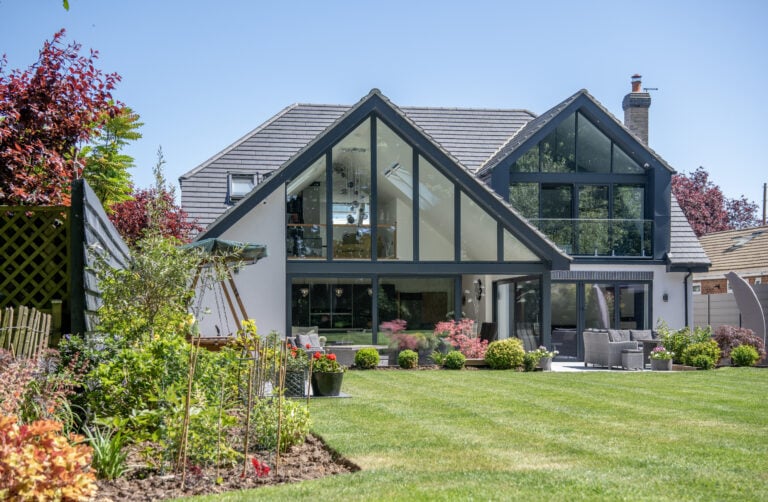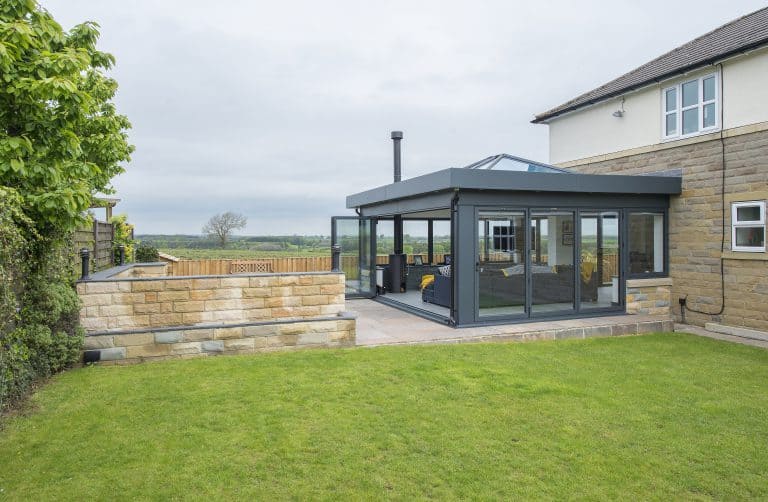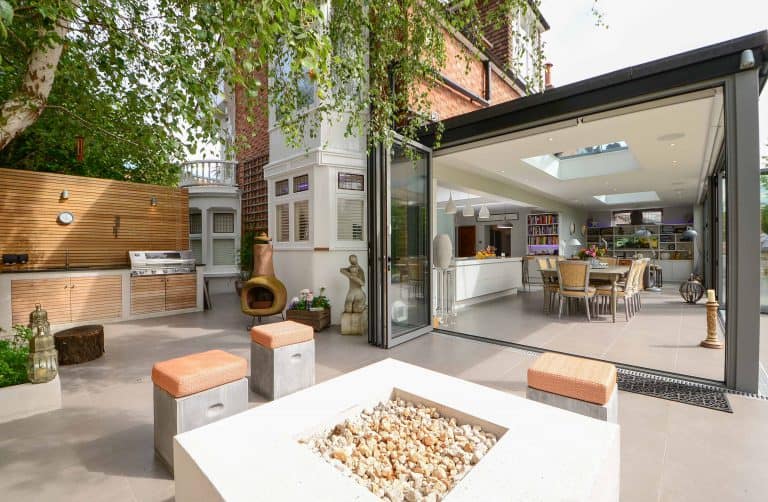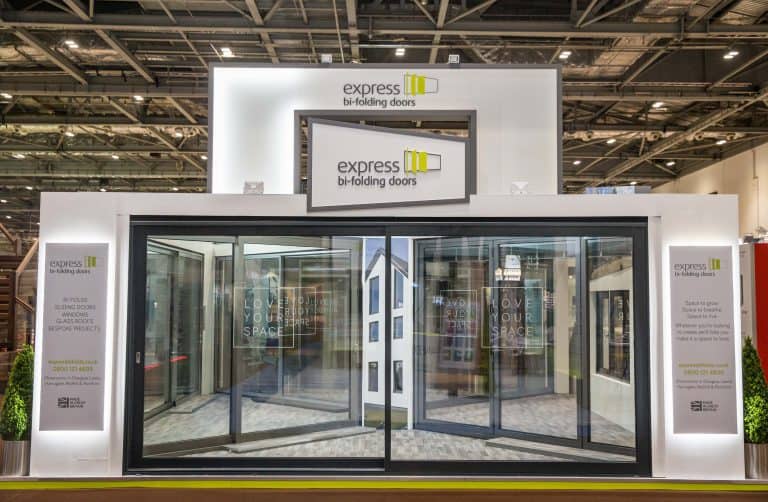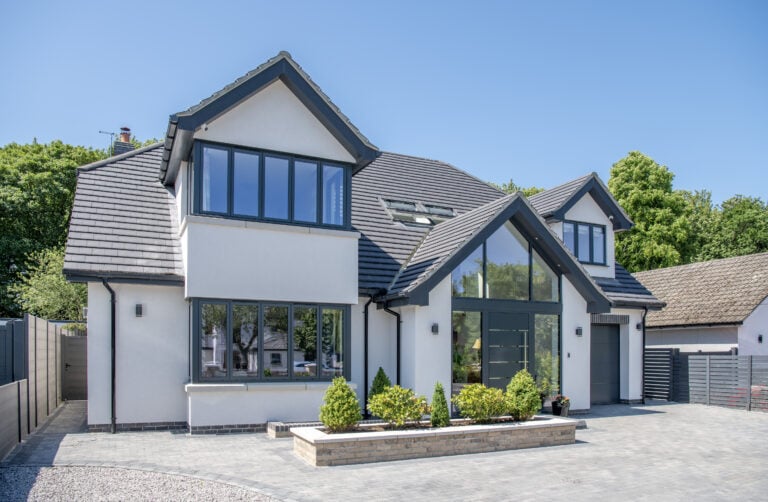What are French doors and are they right for you?
If you’ve been thinking about getting a brand-new set of external doors for your garden, then you’ll probably know that there’s a plethora of options out there for you to choose from.
But while a modern set of bi-folding doors or some classic sliding patio doors might seem appealing, if you’re looking for something a little more traditional, then you might want to consider installing French doors instead.
Ideal for both older homes and contemporary property aesthetics alike, French doors offer excellent flexibility in their design and colour choice. So, to find out if French doors are right for you, we’re going to break down what French doors are, the difference between French doors and patio doors, and the pros and cons of French doors in your home.
What are French doors?
Although the name might suggest otherwise, French doors are actually named after their opening style, rather than solely their country of origin. Specifically, French doors refer to any door setup that is double-hinged and opens outwards or inwards from the middle of their frame – depending on the design of the door and your personal preference.
On top of this, French doors can be easily identified by their entirely clear opening, which lacks any form of excess frame poking out into the doorway, as well as the large panes of glass that run the length of both door bodies.

What is the difference between French doors and patio doors?
As we’ve already hinted at, the main difference between French doors and other types of patio doors is their opening style. While French doors operate on a hinge and swing away from their opening, sliding sit along a track.
Alongside this, you also have bi-folding doors, which are hinged yet secured to a track when closed. However, when opened, they stack on top of one another before swinging out to the side as a French door would.
Of course, these are just surface level differences. For a closer examination on how they compare as an alternative to French doors, we suggest reading our pieces comparing bi-folds and French doors and French doors vs sliding doors.
The pros and cons of French doors
So, now that you know what French doors are, you might be wondering what some of the main pros and cons associated with this type of opening are?
The benefits of French doors
With regards to pros, French doors offer the following advantages to homeowners:
- A full width opening – having the entirety of the doorway clear means that French doors give you a much better view of your garden than other door types when open, and you’re not left with a stack of panes at one end that can obscure your view.
- Natural light – thanks to the large glass panes installed in all French doors, this door type offers excellent natural light opportunities all year round, helping to make your home feel that much more open.
- Increase home size – although they won’t physically increase the size of your home, French doors can help make your home look bigger thanks to their large glass panes, which offer a window into the home and open up otherwise barren external walls.
- Quick garden access – like all external doors, French doors can provide you with a quick and convenient way to get into your garden, helping your patio feel like an extension of your home’s interior with minimal effort.
What to consider before choosing French doors
However, as with any door type, French doors also come with various drawbacks:
- Taking up space – while French doors do have an entirely open width, they can also take up excess space on either side of them when open. This is especially the case if they open internally, and they may get in the way if you don’t leave room for them either side of their entryway.
- Vulnerable to wind – French doors are certainly ideal for a sunny day, however, if it’s particularly windy, you’ll likely find that they get blown open or shut in a strong breeze. So, unless it’s a calm day, you might find you have to keep your French doors shut for most of the year.
- Slimmer views – although narrow sightlines have their perks, if you’re looking for a wide and unbroken view of your garden from your new doors, then you’re better off choosing a set of sliding or bi-folding doors. These doors offer much wider glass panels and slimmer sightlines thanks to the fact that they lock into the side jamb of the door rather than centrally into another panel, as is the case with French doors.
- Energy efficiency – while certainly energy efficient, especially when installed with double-glazing, the way French doors are constructed means they’re much more susceptible to drafts than other door types.
How secure are French doors?
Despite persistent rumours about being easily broken into, French doors are far from insecure, with double-glazed, toughened glass and a multi-point locking systems coming as standard on all good quality doors of this type.
If anything, French door security is so good that they act more as a deterrent than an opportunity.
How much do French doors cost?
Due to the individual nature of each construction project, it is difficult to provide one specific price for the cost of French doors. Every installation is unique and the price you’re charged will reflect this, especially if you choose to go with a bespoke set from Express that’s tailored to your home.
And there you have it; you should now have all the information you need to make a decision on whether or not French doors are right for your home. Of course, for more information, you can also ways get in touch with our expert team – they’ll be happy to answer any questions you may have – or discover even more from us over on our blog, including .
